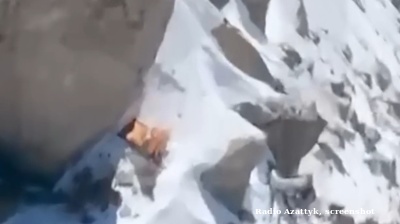Russian President Vladimir Putin congratulated his Belarusian counterpart Alexander Lukashenko on Belarus’s Independence Day on July 3, highlighting their long standing cultural ties and emphasising their common fight against the Nazis in WWII.
“This holiday, associated with the liberation of Minsk from the Nazi invaders, has an enduring significance for both Belarusians and Russians: fighting shoulder to shoulder, our peoples made a decisive contribution to the victory over Nazism,” Putin said in a statement published on the Kremlin website.
Putin was obviously alluding to Belarus’ role as an ally in Russia’s current clash with the West and its war in Nato. Both leaders are prone to bombastic statements that are designed to appeal to their domestic audiences and regularly play on the “enemy at the gates” meme.
Putin said that in the face of present-day external threats, the “bonds of fraternal friendship and mutual assistance” between Moscow and Minsk remain strong. He praised the close coordination between the two countries, united in the face of a common enemy, as well as stressing the development of the Union State, a political and economic integration framework launched in 1999, but on which very little progress has been made due to fundamental differences between the two countries. As bne IntelliNews has reported, Russia has become a powerful market economy, whereas Lukashenko is increasingly resorting to Soviet-era practises as the Belarusian economy suffers due to inefficiency and sanctions pressure.
Putin expressed confidence that by “acting together, the states will overcome any difficulties and strengthen productive bilateral ties for the benefit of the peoples of the countries.”
Belarus marks Independence Day on July 3, the anniversary of the Red Army’s liberation of Minsk from Nazi occupation in 1944. In his address to citizens, Lukashenko said the date symbolised the “restoration of peaceful life” and had become a symbol of “courage and a guide for new generations.” He added that the shared memory of the past would help “make the republic prosperous.”
On July 2, the Belarusian president signed a decree pardoning 16 individuals, including those convicted of so-called extremist crimes. The list included eight women and eight men, with three over the age of 50, two suffering from chronic illnesses and one registered as disabled. Nine of those pardoned have minor children.
Lukashenko has regularly been releasing some of the estimated 1,150 political prisoners languishing in Belarusian jails, a number that soared following extreme repressions introduced by the Belarusian KGB after the mass demonstrations of 2020.
Most recently, Belarusian opposition activist Sergey Tikhanovsky (Siarhei Tsikhanovsky) was released from prison on June 21 following a pardon mediated by US envoy Keith Kellogg, who recently met with President Alexander Lukashenko in Minsk.
“I can't believe it. Siarhei is here – with me and our children. What we’ve dreamed of for five years has finally happened,” his wife, Belarusian opposition leader Svetlana Tikhanovskaya (Sviatlana Tsikhanouskaya), said in a post on social media. “Tonight I’m taking the evening off to talk with my husband, to let him see his children again, after so many years. Thank you all for the tremendous support!”
In contrast to Lukashenko’s rhetoric professing brotherly love for Putin, the decision to release Tikhanovsky was seen by many analysts as a gesture to the West designed to reopen a dialogue as Lukashenko lobbies to have some sanctions relief.
The release of prisoners is also a pitch to make Lukashenko appear magnanimous in the eyes of his people. A similar amnesty issued on May 7, the eve of Victory Day, saw 42 people convicted of extremist offences pardoned. At that time, 13 of the individuals had chronic conditions, one was disabled and 24 had underage children, including two categorised as large families.
News

Russia orders emergency operation in race to save mountaineer trapped on Kyrgyzstan’s highest peak
Top official responds to desperate appeal from climber Natalia Nagovitsyna’s son who believes she is still alive.
_1756222537.jpg)
End of Bolivia's leftist era leaves Chinese and Russian lithium deals in limbo
Bolivia’s October presidential run-off has become a contest not only between two political traditions but also over the management of the country’s vast but underdeveloped lithium resources.

UPDATED: Kosovo gets parliament speaker but months-long political stalemate persists
Prolonged political deadlock had prevented Kosovo's assembly from functioning and blocked the formation of new state institutions since the February general election.

Turkey’s “fast lane” transport minister hit with motorway speeding ticket
Abdulkadir Uraloglu posted video of himself driving at 225 km/h, with clip set to folk music and Erdogan speeches on infrastructure.




